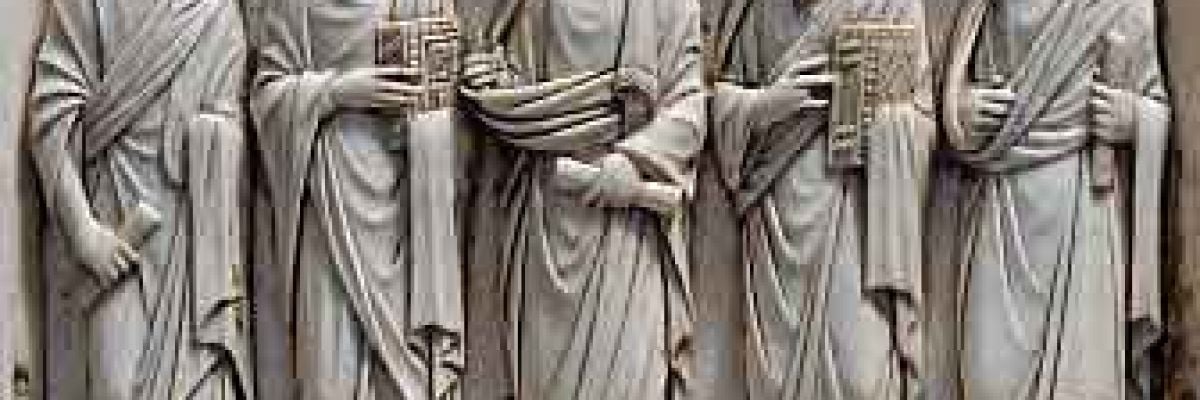
Question:
Answer:
There are a few problems with interpreting this passage:
- It is debated whether the name is Junia (female) or Junias (male). The difference is where the accent mark is placed. The oldest surviving manuscripts do not contain accent marks. Scholars generally lean toward the idea that the name is female, but others in history (and some even today) contend that the name is a male. Outside of Romans 16:7, Junia(s) is not mentioned in the Bible or in early Church writings.
- The passage has also been translated in various ways that can differ in meaning from the presumption that the name referred to is an apostle:
KJV: “. . . who are of note among the apostles . . .”
NAB, NRSV: “. . . they are prominent among the apostles . . .”
ESV: “They are well known to the apostles . . .”
NJB: “Greetings to those outstanding apostles, Andronicus and Junias, my kinsmen and fellow-prisoners, who were in Christ before me.”
DRB: “Salute Andronicus and Junias, my kinsmen and fellow prisoners: who are of note among the apostles.”The passage has been translated by some as a direct reference to the two names as being members of the apostles, but others have translated it as the two names were simply well known to the apostles. There is no definitive way to translate/understand the passage.
- Even if we were to accept the name as feminine (likely but not certain) and that the name is referred to as being a member of the apostles (highly debatable), we are still stuck with the fact that the term apostle did not always connote ordination as we understand it today. Apostle simply means one who is sent. Paul notes that Jesus appeared to 500 (1 Cor. 15:6); perhaps he gave a message of spreading the gospel at which Junia was present. Perhaps Junia is the wife of Andronicus, and they were simply referred to as a team. Mary Magdalene was traditionally called the “apostle to the apostles,” yet no one who used that expression considered her to be among the Twelve.
There are simply too many debated and disputed elements to definitively say just exactly what St. Paul was trying to say here. What we do know is that, outside of this one highly debatable and disputed passage, there are no references to a woman holding Church office requiring ordination. In fact, if the female-apostle advocates were correct, it would seem quite odd that the one single female apostle would be lost to history. Her uniqueness would seemingly have set her apart for praise and honor amongst the earliest Christians.
And if she points to an acceptance of ordaining women in the early Church, why then are there no other known examples? In the New Testament we see other examples of women in prominent roles in the early Church, yet none of them holds what we would consider a Church office of ordination.
The meaning of this passage is far from clear, and the overwhelming testimony of the rest of Scripture and Tradition argues against considering Junia a female apostle.



